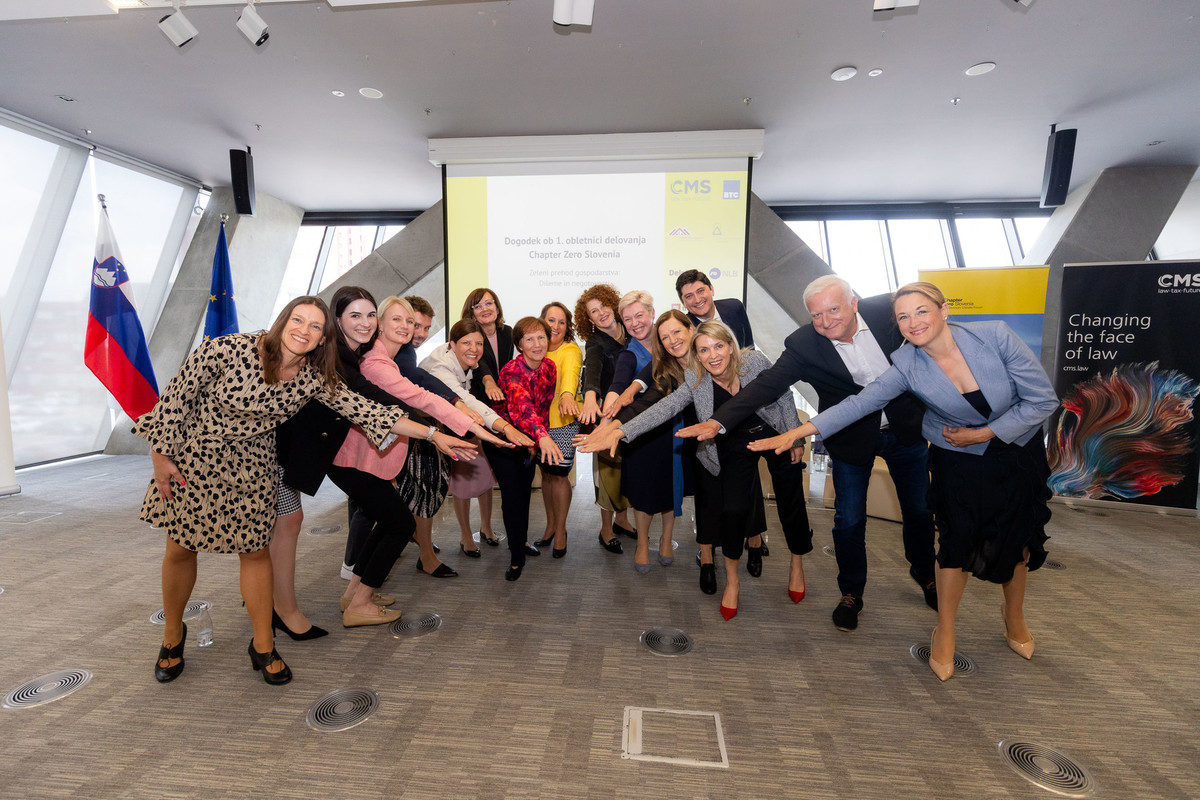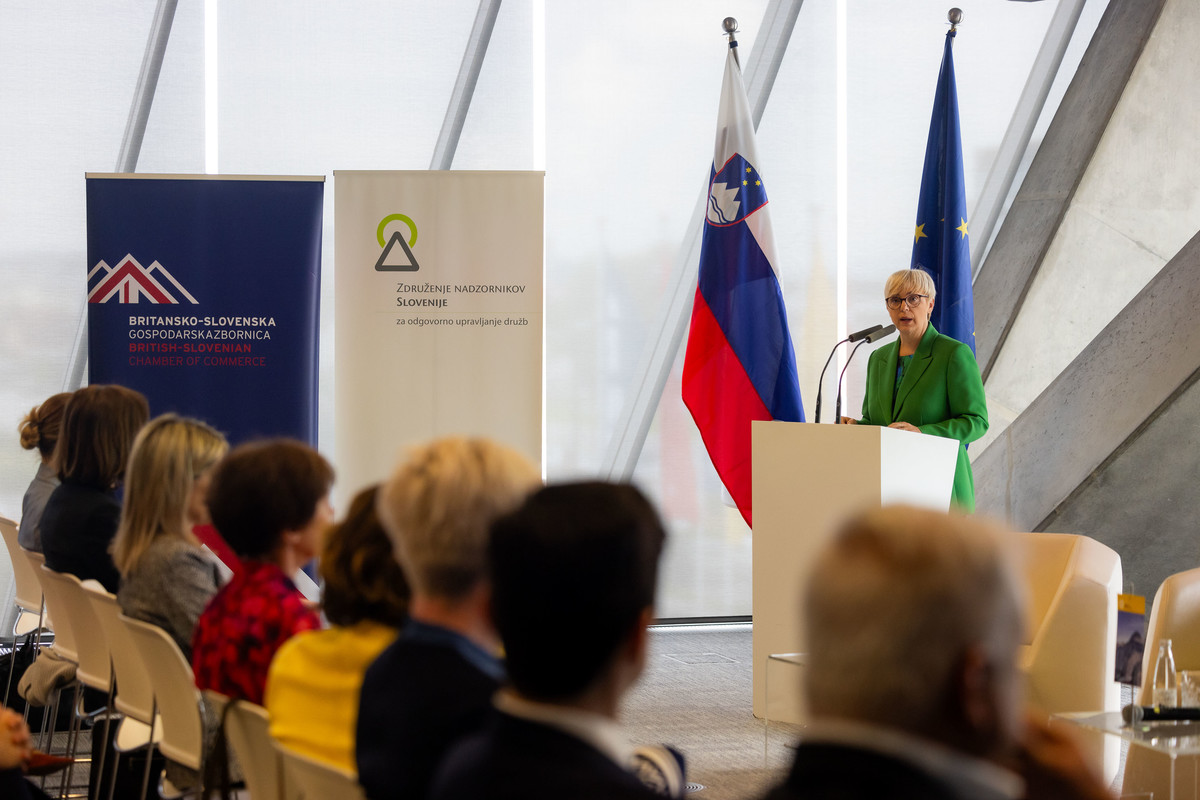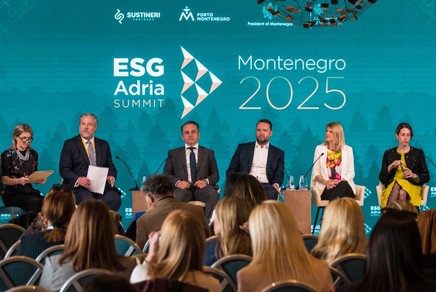Board-Level Reluctance to Climate Action Requires a Mindset Transformation
28 Maj 2024

Ljubljana, 28 May 2024 - A year ago, a climate initiative Chapter Zero Slovenia was established by the British-Slovenian Chamber of Commerce, Slovenian Directors' Association and Deloitte Slovenia, with the aim of strengthening commitment to climate change action at the level of board members of companies in Slovenia.The initiative was launched by the British-Slovenian Chamber of Commerce, the Association of Supervisors of Slovenia and Deloitte a year ago. To mark its 1st anniversary, four experts from the finance, HR, legal and marketing fields looked at two practical examples from the Slovenian economy - Atlantic Grupa and Medex - to seek answers to the challenges and uncertainties the two companies face in the context of a changing climate reality. The event was also attended by the President of the Republic of Slovenia, Nataša Pirc Musar, PhD in her capacity as an honorary patron of the initiative.
The fact that we are living in a new reality of climate change and its consequences was highlighted in the opening address by the President of the Republic of Slovenia, Nataša Pirc Musar, PhD and Honorary Patron of Chapter Zero Slovenia: "We no longer think of climate change as a distant future, but in fact we are living with it here and now. Last year's natural disasters also severely affected businesses. It is in our common interest to do more both on mitigation and adaptation." She concluded by saying, "The world is the responsibility of leaders. It is those who pollute the most who are not sufficiently aware of this."
However, the reluctance to act on climate change at the level of board members is still present, reminded Irena Prijović, Executive Director of the Slovenian Directors' Association and Member of the Management Board of Chapter Zero Slovenia: "There is a need to transform the mindset from the current prevailing thinking that climate change is a cost that we have to pay to make go away, to a new mindset where we focus on reducing its impacts. By doing so, we will remain competitive, build climate resilience and create a better society."
Based on the impact of the new European Deforestation Regulation (EUDR) on the global raw materials market, Nataša Gladović, Director of Corporate Quality Management at Atlantic Grupa, presented the case of the Barcaffe brand. She pointed out that the EUDR requires obtaining information on the geo-location of the production of certain raw materials (cattle, rubber, cocoa, coffee, palm oil, soy, wood), analysis of the risk of endangering tropical forests and the indigenous peoples living there, and the introduction of measures to mitigate these risks, adding: "We welcome any measures to protect the environment, but we are faced with a number of dilemmas in terms of administrative obligations and the actual impact of the regulation on the environment and society, especially given that it is not a global agreement. "
As many suppliers are already announcing higher raw material prices, including coffee, Stefan Spiroski, Management Board Advisor and ESG Coordinator at Nova KBM, stressed the need to strengthen relationships with key suppliers and to actively support them in meeting these demands, with the aim of better controlling the supply chain and costs. On the impact of the announcement of higher prices on the European consumer, Janez Rakušček, Executive Creative Director at LunaTBWA, pointed out, "All brands in Slovenia are affected by the new regulation," but added that Barcaffe, as the strongest brand in the category, has the most to gain from changing consumer perceptions through tangible and clear communication. Saša Sodja, Partner at CMS Reich-Rohrwig Hainz, added that all companies will need to follow the commitment: "A proactive approach to compliance will also reduce legal and financial risks in the long term and increase the brand's competitive advantage." Bojana Florjančič, Managing Partner and Certified Trainer at Hansen Beck, spoke about the key commitment of management to leading employees through change: "Management must create the conditions to find solutions, implement change consistently and make time for priorities."
On Medex's challenges in the face of climate change, Teja Mižigoj, Quality Control Manager, said, "Honey is produced through the efforts of our unique bees. Through economic beekeeping, we can have a major positive impact on the health and well-being of bees, but in recent times we have been faced with a direct destructor. Ten years ago, Slovenia was producing 2000 tonnes of honey per season; now we produce around 200 tonnes. It is worrying to note that in 1970 there were around 21 million bee colonies in this country, but now there are only around 16 million. The fact is that bees cannot live in greenhouses."
In order to mitigate the negative impact of climate change on the future honey supply, Spiroski stressed, "The focus should be on ensuring the long-term profitability of the business. In this way, you can ensure that you have sufficient resources that can be directed towards funding R&D, especially in terms of alternative production techniques, internal processes, ingredients and products; and at the same time expanding and diversifying suppliers." To position itself in the market as an advocate for bees, Rakušček suggested: "Words alone are not enough, let's stick to the principle of Walk the Talk: original and impactful concrete activities are needed on which the communication of the commitment to bees can be built, such as urban beekeeping and planting honey plants." Sodja pointed out that not only clear but also transparent communication is appreciated by more and more consumers: "If Medex is going to communicate general green statements that it contributes to the well-being and conservation of bees, it will have to prove it with credible certificates and regular audits." Last but not least, Florjančič added that "leadership's determination to change, to set focus and to delegate responsibility to all colleagues by inspiring leadership and encouraging innovation is also indispensable."
Ana Struna Bregar, CEO of CER - Sustainable Business Network and Member of the Working Group of Chapter Zero Slovenia, moderated the discussion with a panel of distinguished experts on the challenges facing both companies and concluded the event with a positive message, "I am extremely proud to be part of the important initiative of Chapter Zero to raise the ambition of climate action and to raise the accountability for climate goals at the highest levels of companies."
A special thank you goes to the event's main partner CMS Reich-Rohrwig Hainz and event partner BTC for making the event possible.
Photo gallery can be found here.



